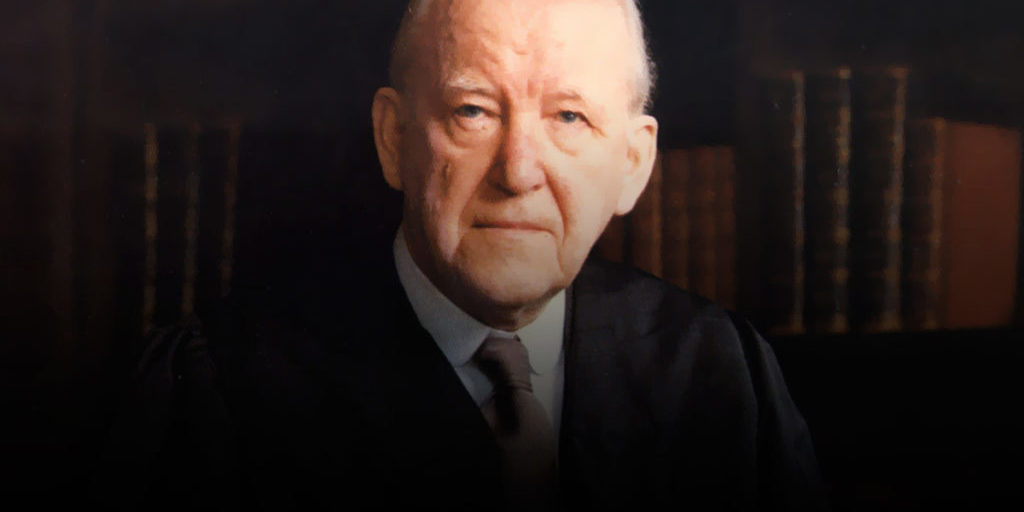
Why Pastors Should Engage Martyn Lloyd-Jones
When I was a seminary student, John Piper encouraged us not to turn to the Bible with a cold heart. He recommended reading someone who would regularly stir our affections in a short space of time (i.e., 5-7 minutes) before turning to Scripture. I began to “experiment” with many different theologians and I quickly found that the one who lit a fire in me most consistently was Martyn Lloyd-Jones. Why does Lloyd-Jones have this type of impact on me and many others? And why do I believe pastors in particular should engage with Lloyd-Jones? I have many reasons for this conviction, but I will limit myself to three.
1. A Heraldic Quality
Lloyd-Jones had a heraldic quality to his writings that grabbed hold of me and left me feeling directly addressed. What do I mean by “heraldic”? The main term for “preacher” in the New Testament is the word for a “herald.” In the ancient world, the “herald” was the town crier that spoke with the forceful tone of “hear ye, hear ye.” Heralding is a distinctive type of delivery. It does not have the feel of a literary essay or the tone and tenor of a fireside chat. In other words, the herald made his proclamation with a rousing “attention-getting noise” that could not be ignored.
Reading Lloyd-Jones had a similar attention-getting dynamic to it. Later I discovered the reason that his books felt like sermons is that they were sermons. Lloyd-Jones did not ever set out to write a book as a literary endeavor. His books are all published sermons, lectures, or conference messages. I never feel like Lloyd-Jones wants to discuss something with me. I always come away with the distinct impression that every word from God demands a response.
J.I. Packer also testified to the arresting nature of Lloyd-Jones’ preaching. Packer reflected upon the first time he heard Lloyd-Jones preach and why it had such an impact upon him.
What was special about it? It was simple, clear, straightforward man-to-man stuff. It was expository, apologetic, and evangelistic on the grand scale. It was both the planned performance of a magnetic orator and the passionate, compassionate outflow of a man with a message from God that he knew his hearers needed. He worked up to a dramatic growling shout about God’s sovereign grace a few minutes before the end; then from that he worked down to businesslike persuasion, calling on needy souls to come to Christ. It was the old, old story, but it had been made wonderfully new. I went out full of awe and joy, with a more vivid sense of the greatness of God in my heart than I had known before.[1]
Packer later tried to summarize the legacy of Lloyd-Jones in personal terms. “I have never heard another preacher with so much of God about him.”[2] I believe that Packer went right to the heart of the lasting legacy of Lloyd-Jones. The Doctor left people with a sense of God. Perhaps that is what Christians (and pastors) need most. The Doctor left people with a sense of God. Perhaps that is what Christians (and pastors) need most. Click To Tweet
2. A Balanced Focus
The second reason pastors should read Lloyd-Jones is his balanced focus. He believed the gospel must capture the whole person. He was never content with preaching that only addressed the mind or the heart or the will. He preached in a way that brought the three together. He saw the warrant for this approach in Romans 6:17. His comments on this verse constitute perhaps my favorite quote from him.
The Christian position is three-fold; it is the three together, and the three at the same time, and the three always. A great gospel like this takes up the whole man, and if the whole man is not taken up, think again as to where you stand. “You have obeyed from the heart the form of doctrine delivered unto you” [Rom. 6:17]. What a gospel! What a glorious message! It can satisfy man’s mind completely, it can move his heart entirely, and it can lead to wholehearted obedience in the realm of the will. That is the gospel. Christ has died that we might be complete men, not merely that parts of us may be saved; not that we might be lop-sided Christians, but that there may be a balanced finality about us.[3]
He also believed that the order mattered. One must always start with doctrine because that is the approach of the New Testament.
In New Testament teaching we are first of all given the doctrine, the teaching; then we are told that we have to apply that to our personal circumstances. Obviously, if we do not know the doctrine we cannot apply it; if we lack an understanding of the teaching we cannot put it into operation. First of all we have the instruction; we must receive it and understand it; then we say, ‘Now in the light of this, this is what I have to do.’ That is the New Testament doctrine of sanctification.[4]
Therefore, Lloyd-Jones brought doctrine and life together in an ordered and balanced way. “I spend half my time telling Christians to study doctrine and the other half telling them that doctrine is not enough.”[5]
Sometimes people regard doctrine with suspicion because they assume it needs to be dry and dull and academic. Lloyd-Jones preaches doctrine in a way that is direct and engaging. He believed that doctrine should be served hot. He believed in this principle so much that it became the essence of his definition of preaching. “What is preaching? It is theology on fire. And a theology which does not take fire, I maintain, is a defective theology; or at least the man’s understanding of it is defective. Preaching is theology coming through a man who is on fire.”[6]
3. A Faithful Approach to Ministry to Follow Today
The third reasons pastors should read Lloyd-Jones is because pastors need models for ministry. So much that passes for ministry models today is pragmatic and faddish. Lloyd-Jones pastored churches in two very different ministry contexts, but he adopted largely the same approach. At his first church (in South Wales), he ministered in a setting of poverty and drunkenness. Everyone was telling him that he would have to try new things to reach modern man. The prevailing view was that people would no longer listen to preaching and so he needed to try more modern methods. Churches should give contemporary people more of what they want like drama and modern music and less preaching.
The Doctor felt the force of the strong winds of prevailing public opinion, but he did not go along with them. He followed the approach of the apostle Paul, who “resolved to nothing among them except Jesus Christ and him crucified” (1 Cor. 2:1). That was the text for his first sermon and he never moved away from it as his guiding principle. He suspended the drama society. Musical evenings were canceled. He simply preached Christ. The church does not need so-called modern attractions; Christ was the church’s only attraction. His sermon on Psalm 34:8 (June 28, 1931) testisfies to this conviction: “The business of preaching is not to entertain, but to lead people to salvation, to teach them how to find God.”
Philip Eveson estimates are that over 500 people were converted and joined the church in the eleven years that Lloyd-Jones ministered at Sandfields.[7] The Doctor had a cupboard that testified to the tangible results of changed lives in this poor area of Wales, which was often decimated by drunkenness. Lloyd-Jones had a cupboard full of liquor bottles that his converts gave him after being set free from a life of drunkenness.
At his second church, the situation was somewhat different. A few months after accepting the pastorate at Westminster chapel in London, World War II changed everything. During the war, the numbers at the chapel dwindled from 2000 to 150. The Doctor faced the same pressure at Westminster that he had felt while in Wales. At the end of the war, some of the members and the deacons of the church wondered whether the plain services (no choir or organ recital) could really attract people back to the chapel. But the Doctor preached the word of God and once again the Lord built his church. By 1948 the first gallery of the Chapel opened again. In 1951, the second gallery re-opened.
These results once again offered vital proof to validate his philosophy of ministry, which was so out of step with the dominant ideology of his day. Everyone saw that church attendance was declining everywhere and the influence of the church in the modern world was growing weaker and weaker. What should be done to counteract these trends? In the name of relevance, many people thought that the church had to become more like the world in order to reach the world. The old doctrines were no longer popular because modern man had a distaste for the supernatural. Therefore, mainline churches surrendered to the world’s skepticism about the Bible and succumbed to liberal theology or modernism.
Even theologically conservative churches were tempted to downplay doctrine in the name of unity. The Ecumenical movement was a powerful force in the Doctor’s day because it was seen as a solution to the growing influence of secularism. If the church was going to grow strong in influence once again, then it would have to make a big showing to the world. The big idea of the Ecumenical movement is that the church could impress the world by its impressively large united front. The sheer size of the Ecumenical movement (so the thinking went) would make it hard for the world to keep ignoring the church. The church would force the world to take notice.
The Doctor diagnosed the root disease in the world as unbelief. The church’s influence in and impact on the world has declined because the church has become infected with the same disease. The church began to put themselves over the Bible. They criticized and then finally denied core aspects of Christian teaching. The problem with the church is that it had lost trust in the truth of the Bible and they had lost confidence in preaching. They no longer believed in the saving power of the preaching of the gospel.
There is nothing new under the sun. The same drama was played out upon the stage of the previous century in Great Britain. The Lord raised up Charles Spurgeon to confront that downward spiral into liberalism. It became known as the Downgrade controversy. R. C. Sproul insightfully said that “Martyn Lloyd-Jones was to twentieth-century England what Charles Spurgeon was to nineteenth century England.”[8] Pastors should read Lloyd-Jones because we need pastors like this in every generation.
Endnotes
[1] J. I. Packer, “Foreword,” in Martyn Lloyd-Jones, The Heart of the Gospel (Wheaton: Crossway, 1991), 8.
[2] Iain H. Murray, D. Martyn Lloyd-Jones: The Fight of Faith, 1939-1981 (Carlisle, PA: Banner of Truth, 1990), 325.
[3] D. Martyn Lloyd-Jones, Spiritual Depression: Its Causes and Its Cure (Grand Rapids: Eerdmans, 1965), 60.
[4] D. Martyn Lloyd-Jones, Life in the Spirit in Marriage, Home and Work: An Exposition of Ephesians 5:18-6:9 (Grand Rapids: Baker, 1974),
[5] Banner of Truth, Issue 275.
[6] D. Martyn Lloyd-Jones, Preaching and Preachers (Grand Rapids: Zondervan, 1971), 97.
[7] Eveson, Travel with Martyn Lloyd-Jones, 69.
[8] Back cover of The Christ-Centered Preaching of Martyn Lloyd-Jones (Wheaton: Crossway, 2014).

